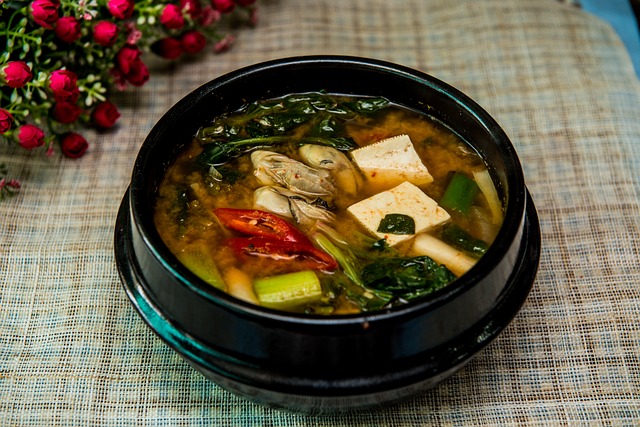
Japan is known for many things, and one of these is the amazing diversity of food and dishes that they have. But did you know that the Japanese even have dishes specifically made to quickly recover from injuries? Here are five well-known Japanese dishes for faster injury recovery.
Umeboshi
Umeboshi are Japanese plums, or ume, that are cured in salt and shiso leaves for a few months, and then dried in the sun. This pickled technique gives these plums that salty kick that the Japanese love! Umeboshi is usually eaten with rice as a meal so you will find rice balls filled with an umeboshi for that extra flavor.
Although considered mostly as a Japanese treat, umeboshi is a staple in many Japanese households. These flavorful plums are known to contain a good amount of citric acid, which is known to help the body absorb minerals better. Ume contains the highest concentration of citric acid out of any fruit, and even a tiny one can contain at least two to three times as much citric acid compared to a lemon. Citric acid improves the circulation in the body while boosting the immune system. In addition, citric acid is known to be great at boosting energy, meaning it can aid the body in recovering after exertion by helping break down and flush out lactic acid, which causes physical fatigue. So while a lot of your time in recovery may be spent researching the best personal injury lawyer to assist you, these tart treats can be just as big a part of your routine.
Green Tea or Matcha
Matcha has become one of the world’s favorite drinks. It is a great alternative to coffee because of its caffeine, but without the side effects that caffeine has. Not only that, it is known to be packed in antioxidants, which helps with aging and chronic diseases, making matcha a powerhouse drink. One matcha cup is equal to ten green teacups, hence why vitamins and minerals you get from drinking just one cup is more than enough to start incorporating this into the daily diet.
The antioxidants in matcha are great at speeding up the recovery process of your body. These antioxidants, or catechin polyphenols, work to reduce inflammation of the body after injuries or intense workout sessions. Because of its ability to do just that, it helps inhibit the production of molecules that contribute to joint damage and inflammation. Not only are they great at getting you back on track, matcha also helps build the immunity of the body, which means more time hustling!
Miso Soup
In every Japanese meal, miso soup is the most common thing you will find. However, not many people know the benefits of miso besides it tasting so good! Miso, or fermented beans, is a protein-rich paste that is used by the Japanese people to put flavor in their dishes. Most Japanese have a cup of miso soup in the morning as this helps digest the food better and energizes the body. Since fermented beans are known to be high in probiotics, miso is great at keeping the gut healthy. There are four known different varieties—shiro, shinsu, aka, and mugi miso—but there could be more depending on the beans.
Miso is abundant in vitamins and minerals, making this a great source of iron, calcium, potassium, B vitamins, and protein. It is also high in amino acids and an excellent source of quality polyunsaturated fats. This means that miso aids in controlling cholesterol in the body and stops cellular degradation, making it a great fighter of cancer and free radicals.
Amaake
Amazake is a traditional Japanese beverage made from fermented rice. It is often sweet and can be taken even by babies. Made from koji fermented rice, amazake contains kojic acid and B vitamins. This makes this sweet beverage a widely known drink for the Japanese that nourishes the skin, hair, and nails. It hits two birds with one stone by improving both the beauty and the health of the person. Because it is fermented, it is high in dietary fiber and contains certain digestive enzymes that aid digestion.
Amazake is also great for weight loss as it contains pantothenic acid, or vitamin B5, which helps break down fat and carbohydrates. High amounts of folic acid are also found in amazake, which is great at boosting the body’s blood cell regeneration and makes it a healthy alternative to fighting anemia.
Konnyaku
One of the more unknown Japanese delicacies, konnyaku is considered as a miracle jelly by the Japanese because of its potency in healthy vitamins and minerals even without much calorie content! Konnyaku is a traditional Japanese jelly-like health food made from a kind of yam called konjac and calcium hydroxide, or oxide calcium, extracted from eggshells. Konjac is a plant native to warm, tropical eastern Asia, which includes China and Indonesia, besides Japan. There are two basic types of konyakku, which are ita-konyakku (gray konyakku) and ito-konyakku (white Konyakku), the latter is then made into shirataki, or white noodles.
Konnyaku is known as an almost zero-calorie food and has no fat content, which makes this a staple for Japanese diets that aid in weight loss. This also leads to it being a great food choice at maintaining good cholesterol levels. Because konnyaku is great at improving the immune system, it makes this jelly-like food another great choice at improving the recovery rate of injuries.
Japanese food has become one of the most beloved food of the world. What more reason can there be to try out Japanese food today?

Leave a Reply